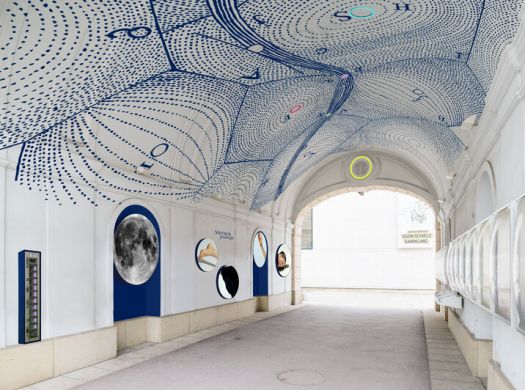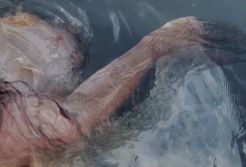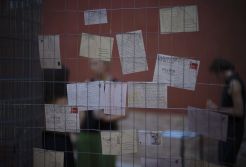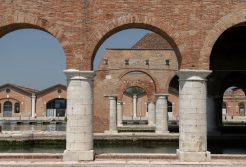Nia Palmer talks about her "Curators of Tomorrow" residency in MuseumsQuartier Wien
13 September 2023
We are delighted to announce that the "Curators of Tomorrow" fellowship program in cooperation with MQ Artist-in-Residence Program in Vienna launched its third edition in August 2023
This international residency is a collaboration between MuseumsQuartier Wien and Manchester School of Art. This exceptional international residency program aims to support MA/MFA Contemporary Curating students’ curatorial practice internationally and encourage them to make new connections with peers in the Fellowship through international exchange activities.
The “Curators of Tomorrow“ program focuses on providing talented creatives with opportunities to develop their trans-disciplinary skills and explore how to work internationally. Each participant is given the opportunity to live and work for the period of one month in one of the MQ studios at MuseumsQuartier in Vienna part of their Fellowship.

During her residency at MQ Wien, Palmer’s focus was delve into research surrounding queer art, belonging and identity by questioning the institutional response, or lack of response, to this.
Nia joined us in this interview to talk about her residency experience and her academic experience with her studies, conducted by Dr Gulsen Bal (Programme Leader in MA/MFA Contemporary Curating).
Gulsen: Could you please tell us about yourself and your experience with your academic studies on the MA Contemporary Curating programme at Manchester School of Art?
Nia: I’m a curator and artist, with a research focus on socially engaged practice and political art. My experience with the course has been a positive one, as it has given me opportunities to gain professional experience and to meet like-minded creative people. I have come from a fine art background, with curation being a new venture for me, so I’ve also enjoyed learning about curation as a practice and exploring new perspectives.
Gulsen: Could you please tell us what inspired you to apply to this specific international Fellowship and what you hoped to achieve through this unique fellowship opportunity?
Nia: I already had an interest to apply for an international residency, with a particular interest in Europe. This was the next step for me so that I could gain experience living and working professionally in a different country, and to learn more about the international art sector.
We had visited Vienna with the course in the previous March, which made me intrigued to learn more about their culture and art scene. When the opportunity came up, it felt like the perfect option for me at that time.
Gulsen: What are the curating issues you hoped to address through your residency? And maybe you could share your thoughts about the benefits of embarking on a one-month fellowship in Vienna and how this impacted on your curatorial thinking?
Nia: My research focus for the fellowship was queer art, and how this was engaged with in Vienna, particularly the difference in approach by institutions and independent organisations. The residency helped me to explore this as they provided me with an artist-in-residence card, allowing me free access to all of the galleries at MQ. I was also provided with a free studio apartment on the MQ grounds and an allowance. This helped me with traveling around the city, and allowed me a comfortable space to live and work in. Arranging meetings with other curators and artists that work independently and have little relations with institutions, has inspired my curatorial thinking. I have always been inspired by the artist-led and learning more about how this functions has inspired me to enquire further into this.




